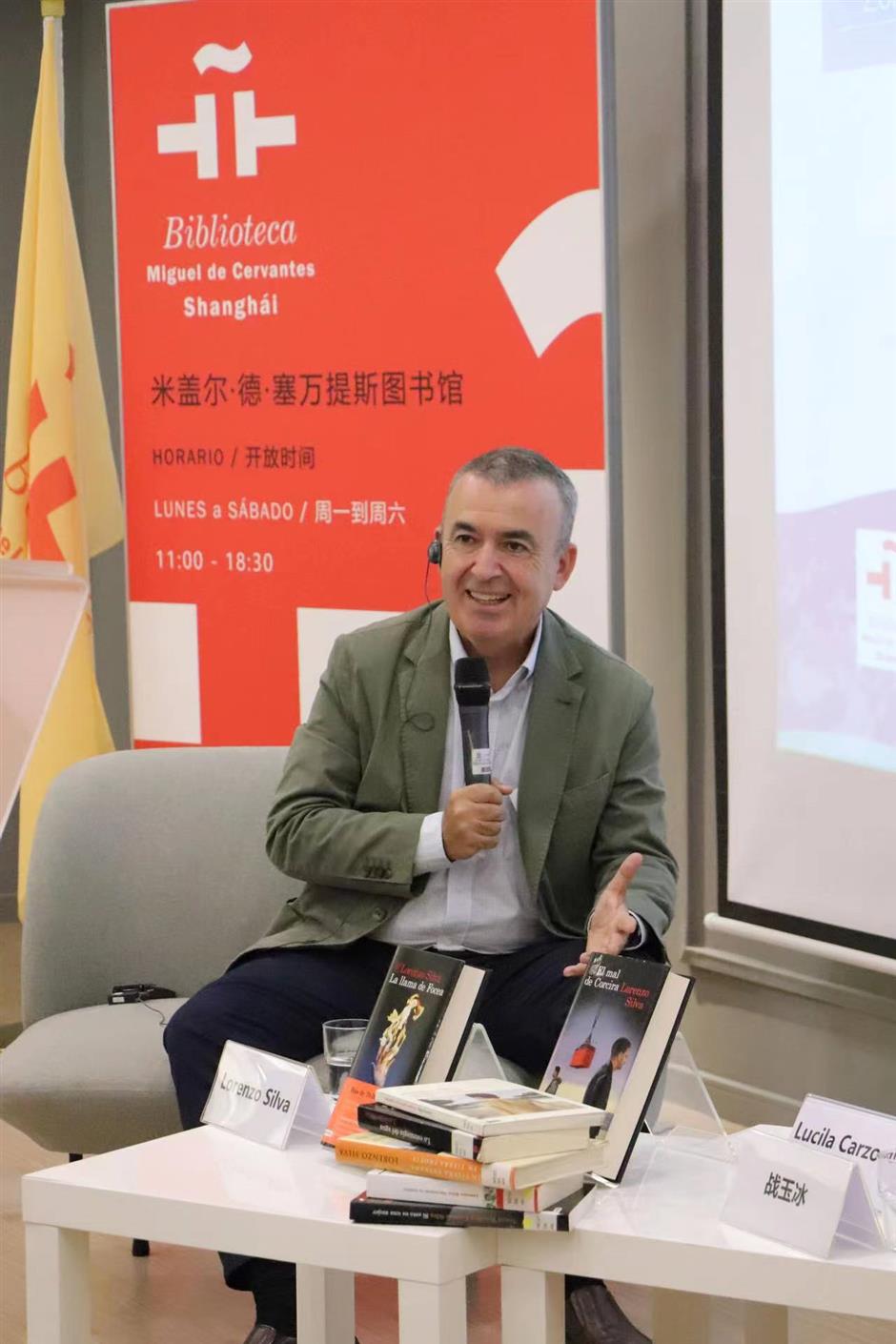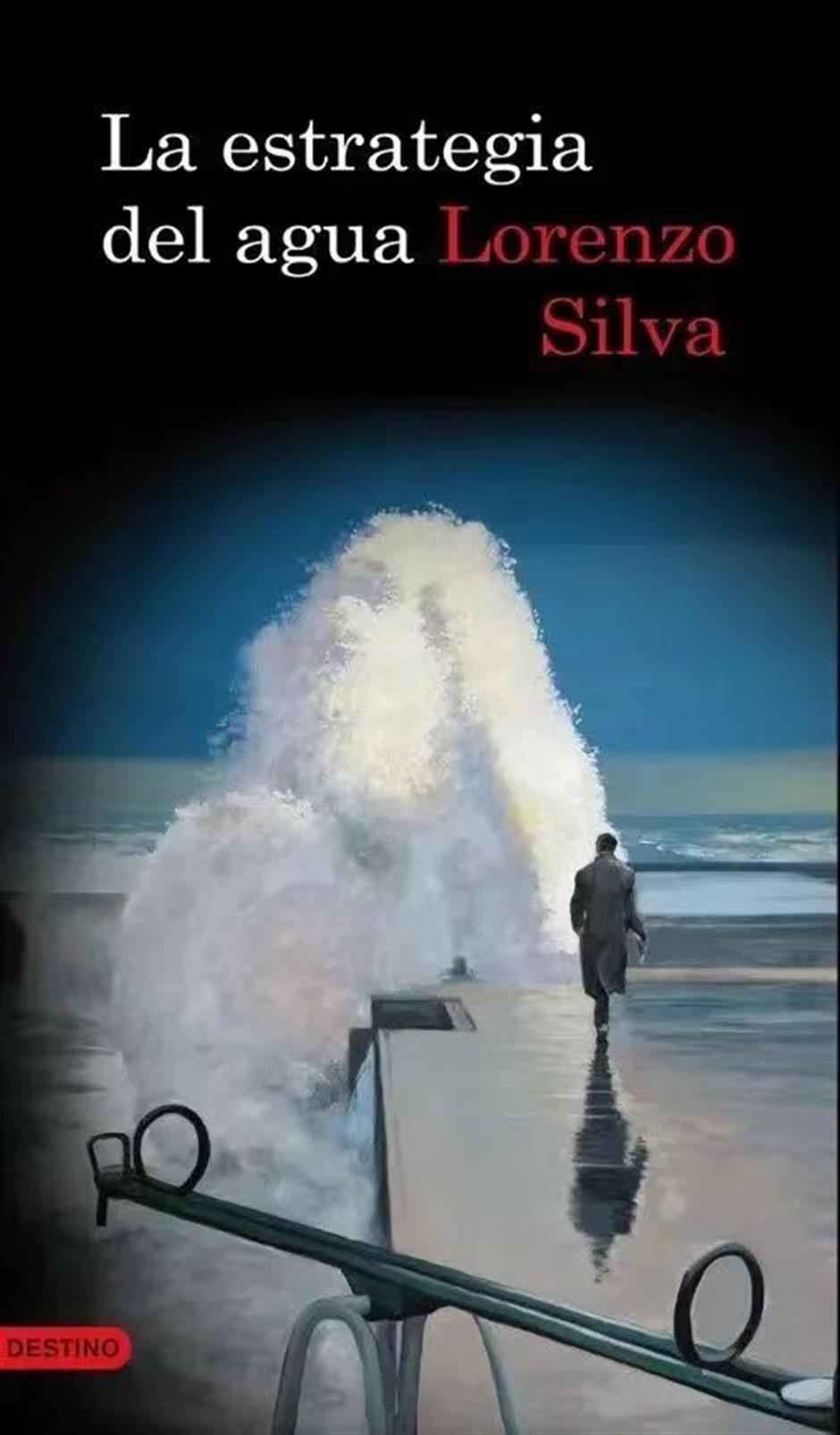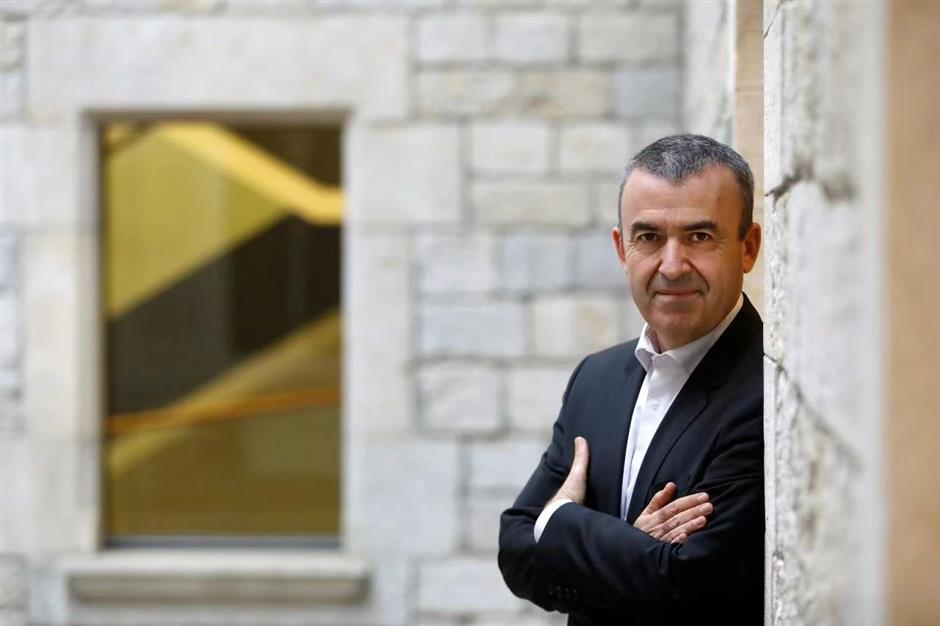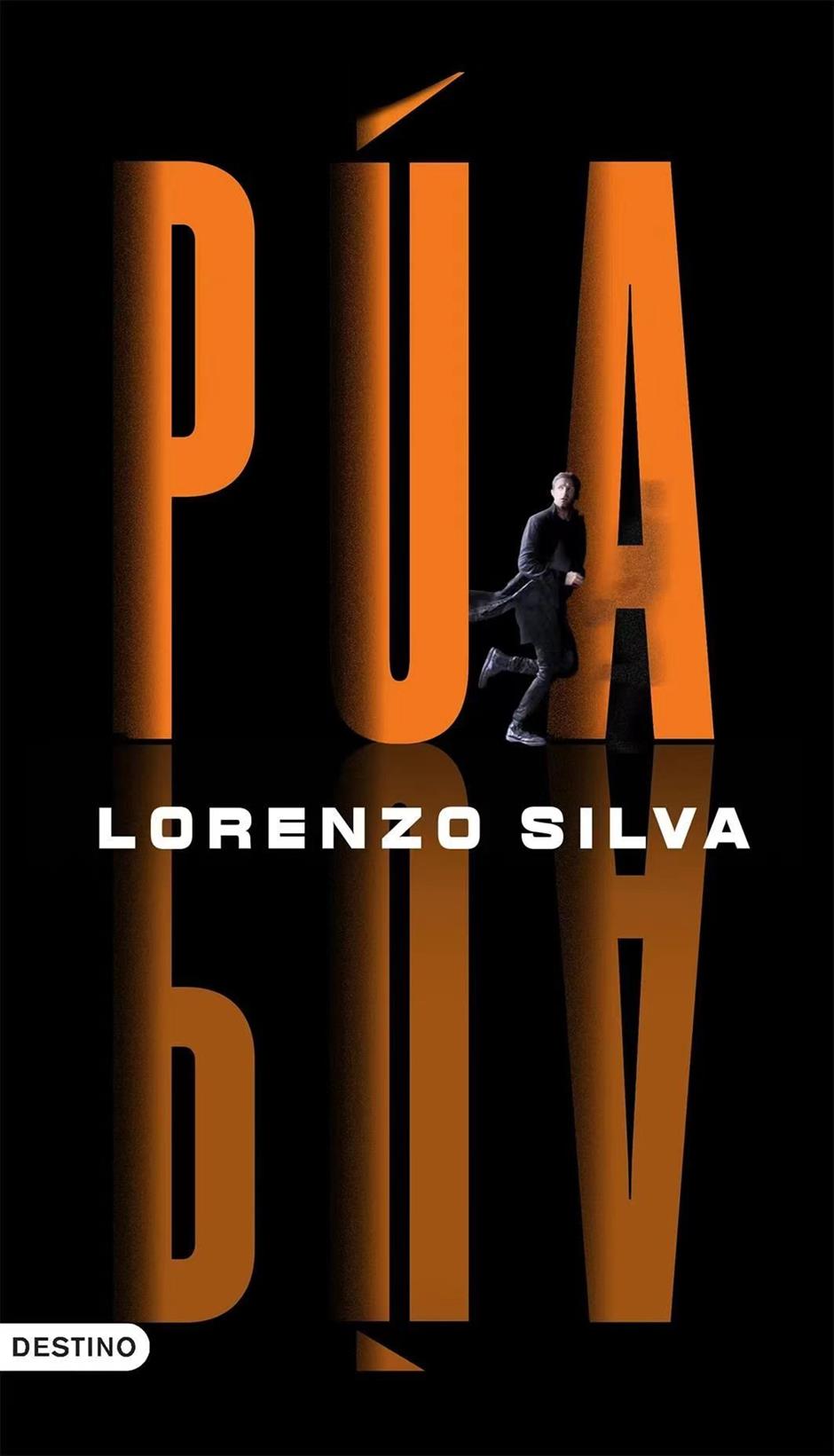Award-winning Spanish author opens book on his writings
"A military force has no constant formation, just as water has no constant shape."
– "The Art of War" by Sun Tzu
This ancient line stayed with Lorenzo Silva, now a prolific Spanish author of 84 books, when he read the "The Art of War" as a teenager.
He was so impressed that some 30 years later he turned "The Art of War" into an important clue in his 2010 crime novel "The Water Strategy."
One of his first stories, written back at age 18, cited another classic Chinese text "Tao Te Ching," a book of Taoist philosophy first published around 4th century BC.
"It's my first trip to China, and it's all the more interesting for me since I've read a lot about China for years, not only from Chinese books, but also other literature like Kafka's excerpts on the Chinese Wall," the writer told Shanghai Daily during his recent visit to Shanghai for the annual book fair.
"Chinese culture and history are so different from those of Spain, and we have very different views on many things. But coming here, hearing many Chinese writers, I also find similar minds despite such differences."

A recent book event featuring Lorenzo Silva at the Miguel de Cervantes Library in Shanghai.
The first-time visitor added, "I love being a foreigner."
Indeed, the protagonist of his best-selling detective series, Sergeant Bevilacqua has a family name that is of Italian origin, and "difficult for Spaniards to pronounce."
"The strange family name immediately turns him into a strange character, in a way a foreigner, everyone wonders where he comes from," the author explained.
"That gives him a sort of distance and a different perspective, he is a mental outsider and in a way a citizen of the world."
The sergeant, and Corporal Chamorro, are the main characters of Silva's best-known detective series. The second novel of the series "El alquimista impaciente," won him the Nadal Prize in 2000. In 2012, he was awarded the Premio Planeta de Novela, a prestigious Spanish literary prize for "La Marca del meridiano."
He has also written for TV and movies.
And some of his novels have been adapted to the screen, such as the 2003 Spanish drama film "The Weakness of the Bolshevik," directed by award-winning Spanish director Manuel Martin Cuenca, with a script co-written by the director and the author.

"The Art of War" is used as an important clue in Silva's 2010 novel "The Water Strategy."
Yet, Silva doesn't hide his concerns for the growing influence of TV and films on writers, which "impoverish literary possibilities."
"Arts always have reciprocal influence on each other," he said. "We writers learn from painters, sculptors, architects or filmmakers, the way they express human sensitivity in a different form. That's the good part of the reciprocal influence.
"But I have noticed that many writers today don't read. That's terrible."
Having served on the juries of many awards, he has read dozens of novels with no literary influence at all, instead they are full of references taken from TV series or movies.
"Literature may come from everywhere, but the main source for literature is literature," he said.
"Words are so powerful and magical in ways that images can't do."
He has also noticed many writers now write in a way presumably easier to be adapted to screen, and often it turns out to be only succession of cheap tricks like plot twists and cliff hangers.
"Of course you can use these tricks, I use them too, but there is an infinite variety of resources apart from these tricks, it's just a pity to limit your literary possibilities," he said.

The author.
He is also concerned that crime novels might be too popular now in many countries that it overshadows other genres. Although best known for his crime novels, only a quarter of his books belong to this genre.
Silva has had a long and successful career.
The first of the detective series, first published in 1998, has been constantly reprinted, with the latest edition sent to his office just last month.
It is hard to imagine crime novel was only marginal in Spain when he first started, and his first novel was rejected by 10 publishers.
"In the 1990s when I just started as a young writer, it wasn't a popular genre at all," he said.
"Now it's completely changed and is the center of publishing system in Spain like in many countries.
"But sometimes I wonder, if Raymond Chandler were alive, he might be worried about it getting over-valued too. After all, he said it's not the story, but what's inside the writer in response to the critics who belittled the genre."

Silva's latest novel
















